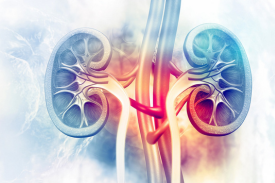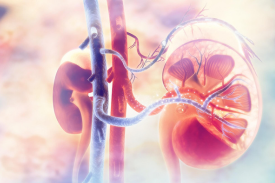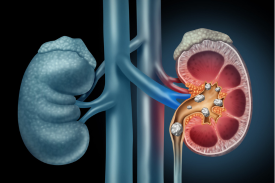Exploring Surgical Options for Urological Cancers: Insights into Radical Nephrectomy, Cystectomy, and Prostatectomy
Urological cancers, including kidney, bladder, and prostate cancer, pose significant challenges to patients and healthcare providers alike. When it comes to treatment, surgical intervention plays a pivotal role in managing these cancers effectively. In this article, we’ll delve into three common surgical options for urological cancers: radical nephrectomy for kidney cancer, cystectomy for bladder cancer, and prostatectomy for prostate cancer, shedding light on each procedure’s purpose, process, and outcomes.
- Radical Nephrectomy for Kidney Cancer:
Radical nephrectomy is a surgical procedure performed to remove the entire affected kidney, along with surrounding tissues and lymph nodes, in cases of kidney cancer. This procedure is typically recommended when the cancer is localized within the kidney and has not spread to other organs or distant sites. Dr. Sunil Mhaske, a distinguished Consultant Urologist at Pune Institute of Nephro Urology (PINU), renowned as one of the best urology hospitals in Pune, specializes in performing radical nephrectomies with precision and expertise.
During a radical nephrectomy, the surgeon makes an incision in the abdomen or side (flank) to access the affected kidney. The kidney, along with the adrenal gland and surrounding fatty tissue, is carefully dissected and removed. In some cases, nearby lymph nodes may also be removed for thorough staging and evaluation. Radical nephrectomy can be performed using minimally invasive techniques such as laparoscopy or robotic-assisted surgery, which offer faster recovery times and reduced postoperative pain compared to traditional open surgery.
- Cystectomy for Bladder Cancer:
Cystectomy is a surgical procedure performed to remove all or part of the bladder in cases of bladder cancer that are invasive or have not responded to other treatments. Depending on the extent of the cancer and the patient’s overall health, cystectomy may involve either partial or radical removal of the bladder. Dr. Mhaske and his team at PINU specialize in performing cystectomies using advanced surgical techniques to achieve optimal outcomes for patients.
During a cystectomy, the surgeon may create a new urinary diversion system to allow urine to exit the body after the bladder is removed. This may involve creating a urinary reservoir (neobladder) using a segment of the small intestine or diverting urine to an external pouch (ileal conduit) attached to the abdominal wall. The choice of urinary diversion depends on various factors, including the patient’s age, lifestyle, and preference.
- Prostatectomy for Prostate Cancer:
Prostatectomy is a surgical procedure performed to remove the prostate gland in cases of prostate cancer that are localized and have not spread beyond the prostate. There are several approaches to prostatectomy, including open surgery, laparoscopic surgery, and robotic-assisted laparoscopic surgery (robotic prostatectomy). Dr. Sunil Mhaske, with his expertise in urological oncology, offers comprehensive care for patients undergoing prostatectomy at PINU.
During a prostatectomy, the surgeon carefully removes the prostate gland, along with nearby tissues and lymph nodes, through an incision in the abdomen or using minimally invasive techniques. Robotic-assisted laparoscopic prostatectomy, in particular, offers enhanced precision and visualization, leading to improved outcomes and faster recovery for patients.
Summary:
Surgical intervention remains a cornerstone in the treatment of urological cancers, offering the potential for cure or long-term disease control. With advancements in surgical techniques and the expertise of urological oncologists like Dr. Sunil Mhaske at Pune Institute of Nephro Urology (PINU), patients can undergo radical nephrectomy, cystectomy, or prostatectomy with confidence, knowing they are receiving the highest standard of care. By partnering with skilled healthcare providers and exploring all available treatment options, individuals facing urological cancers can navigate their journey with hope and resilience, towards a brighter and healthier future.




